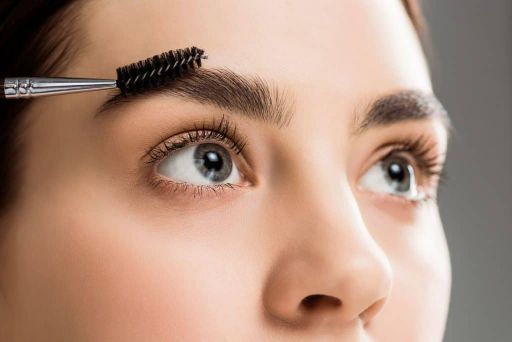Ingrown hairs are a common problem that many people suffer from, especially those with curly or coarse hair.
What causes them and how long do they last? But more importantly, can using coconut oil for ingrown hair help to get rid of ingrown hairs? But first, lets us know what causes ingrown hair and how long they last.
Contents
What Causes Ingrown Hairs?
Ingrown hairs occur when a strand of hair curls back on itself and grows into the skin instead of growing outward.
This usually happens when the hair is cut too short, which is why it’s important to use sharp scissors when trimming your hair.
It can also happen if the skin around the follicle gets inflamed due to friction or irritation from clothing or shaving products.
How Long Do Ingrown Hairs Last?
The length of time an ingrown hair will last depends on how quickly you treat it. If left untreated, ingrown hair could stay on the skin for up to two weeks before it resolves itself.
However, it is important to note that this could result in scarring or infection if not treated properly, so it is best to address the issue as soon as possible.
Benefits of Using Coconut Oil for Ingrown Hair:
Here are the top 5 benefits of using coconut oil for ingrown hair:
1. Antibacterial and Anti-Inflammatory:
Coconut oil has been used as a natural remedy for centuries and its anti-inflammatory and antibacterial properties make it a great choice for treating ingrown hairs.
Coconut oil helps reduce inflammation and redness, as well as kills bacteria that can cause infection.

2. Contains Lauric Acid:
The lauric acid in coconut oil helps reduce inflammation and redness, while its moisturizing properties help soothe and nourish irritated skin.
3. Improves Follicle Health:
Additionally, its emollient nature helps soften the follicles so that they can grow outwards instead of growing back inwards into the skin.
Furthermore, coconut oil can help speed up the healing process by preventing infection and allowing new hairs to grow without any further issues.
4. Helps in Shaving:
Coconut oil can also help reduce razor bumps and irritation caused by shaving.
5. Moisturizes:
Coconut oil is also a natural moisturizer, so it can help keep the skin around the follicle soft to prevent ingrown hairs from forming in the first place.
Ways To Use Coconut Oil For Ingrown Hair:
Here are 5 ways of using coconut oil for psoriasis:
1. Applying It Directly:
You can apply coconut oil directly to your ingrown hairs.
Massage it into the skin around the follicle and leave it on for a few minutes before washing it off with lukewarm water.
This will help soften and soothe the area, helping to reduce inflammation and irritation.
2. Adding It To Your Shaving Routine:
You can also add coconut oil to your shaving routine by using it as a shaving cream.
This will help reduce irritation and razor burn, as well as prevent ingrown hairs from forming in the first place.
3. Using With Essential Oils:
Finally, you can mix coconut oil with essential oils such as tea tree or lavender oil to further reduce inflammation and irritation around the follicle.
4. Tea Tree Oil and Coconut Oil for Ingrown Hair
Tea tree oil is another natural remedy that has anti-inflammatory and antiseptic properties, making it an effective treatment for ingrown hairs.
- To use tea tree oil and coconut oil together, mix a few drops of tea tree oil with some coconut oil in your hand or on a cotton swab.
- Then apply the mixture to the area affected by the ingrown hair and massage gently.
- Doing this twice a day can help reduce inflammation and promote healing.
5. Baking Soda and Coconut Oil for Ingrown Hair
Baking soda is another natural remedy that can be used to treat ingrown hairs.
It helps reduce inflammation and irritation caused by ingrown hairs, as well as helps unclog pores and prevent further ingrown hairs from forming.
- To use baking soda and coconut oil together, mix a teaspoon of baking soda with two teaspoons of coconut oil in a bowl.
- Then apply the mixture to the affected area and leave it on for 10 minutes before rinsing it off with warm water.
- Doing this twice daily can help reduce irritation, and inflammation and prevent further ingrown hairs from forming.
Precautions While Using Coconut Oil for Ingrown Hair
Coconut oil is a natural remedy and can be beneficial when used correctly, however, it is important to note that it may cause skin irritation in some individuals.
- Therefore, you should always do a patch test before applying coconut oil to your skin, especially if you have sensitive skin.
- Additionally, make sure you use only pure and organic coconut oil and not a product that has added fragrances or alcohol.
- Lastly, avoid using coconut oil on broken skin as this could cause infection.
Coconut Oil for Ingrown Hair Cysts
Coconut oil can also help reduce the size of cysts caused by ingrown hairs.
To do this, apply a warm compress to the affected area for 10 minutes and then massage some coconut oil into the cyst 3 times a day. This will help soften the skin and reduce inflammation.
Additionally, you can use an exfoliating scrub to help unclog the pores and free up any trapped hairs.
Conclusion:
Is Coconut Oil Good for Ingrown Hairs? The answer is yes!
Coconut oil has anti-inflammatory properties that help reduce redness and swelling associated with ingrown hairs, while its moisturizing properties provide relief from itching and irritation caused by them.
Its emollient nature also helps soften follicles so they can grow outwards instead of inward into the skin surface.
For these reasons, coconut oil is an effective remedy for treating ingrown hairs—especially when combined with other natural remedies such as tea tree oil or aloe vera gel—and should be part of your regular skincare routine if you are prone to getting them.




